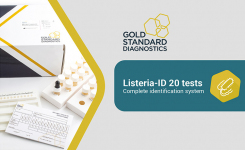A computational tool that claims to be up to 300 times faster than any other microbial source tracker (MST) has been developed by a UCLA research team and shared on software sharing platform github.com/cozygene/FEAST
The software FEAST (fast expectation maximization for microbial source tracking) which was created by Eran Halperin and his team at ‘The Big Data and Genomics Lab’ rely on a different algorithm than SourceTracker, the most widely used MST, and can handle larger datasets than its rival.
The paper FEAST: fast expectation maximization for microbial source tracking was published in the science journal Nature Methods. Lead author Liat Shenhav states that the algorithm used by FEAST for microbial source tracking enables results to be returned faster than its competitors, and although both work of similar modelling FEAST is faster and potentially has the capacity to be more accurate with development given its efficiency.
Analysing a microbiome will no doubt throw up some questions as to why an organism is present in the community and where did it come from. SourceTracker has been the gold standard method for microbial source tracking (MST) providing an easy to use interface with information provided in pie-charts. However FEAST’s creator Eran Halperin states SourceTracker’s algorithm MCMC (Markov Chain Monte Carlo) is computationally expensive and can only handle small to medium datasets.
Halperin and his team at UCLA also found that FEAST can cut down on the unknown source percentage when quantifying microbial sources in a microbiome by utilizing valuable data collected by the Earth Microbiome Project, American gut Project and the Human Food Project. These valuable sources of information which have been a citizen-science collaboration across continents have collected up to 467 million 16srRNA fragments since their inception and the FEAST uses all three datasets which can give better results on your unknown sources and a faster response on your known ones.
In collaboration with this project was Itzkhak Mizrahi of the Mizrahi lab in Ben-Gurin University in Israel. The Mizrahi lab has made headlines themselves recently, in their study of the cow microbiome. The Mizrahi lab discovered how the cow’s genes can be used to control the cow microbiome and thus reduce the cow’s methane production, a global concern which has researchers across the world working on it.
The big task for the Big Genomics lab, as they see it is understanding the compositional characteristics of a microbiome due to its links to many health related problems which include obesity, cancer and inflammatory problems. “My hope is that scientists will use FEAST to diagnose bacteria-related health conditions, for example if a particular cancer has a microbial signature, FEAST can potentially be utilized for early diagnosis”, said Liat Shenhav.
Note: This content has been edited by a rapidmicrobiology staff writer for style and content.






















